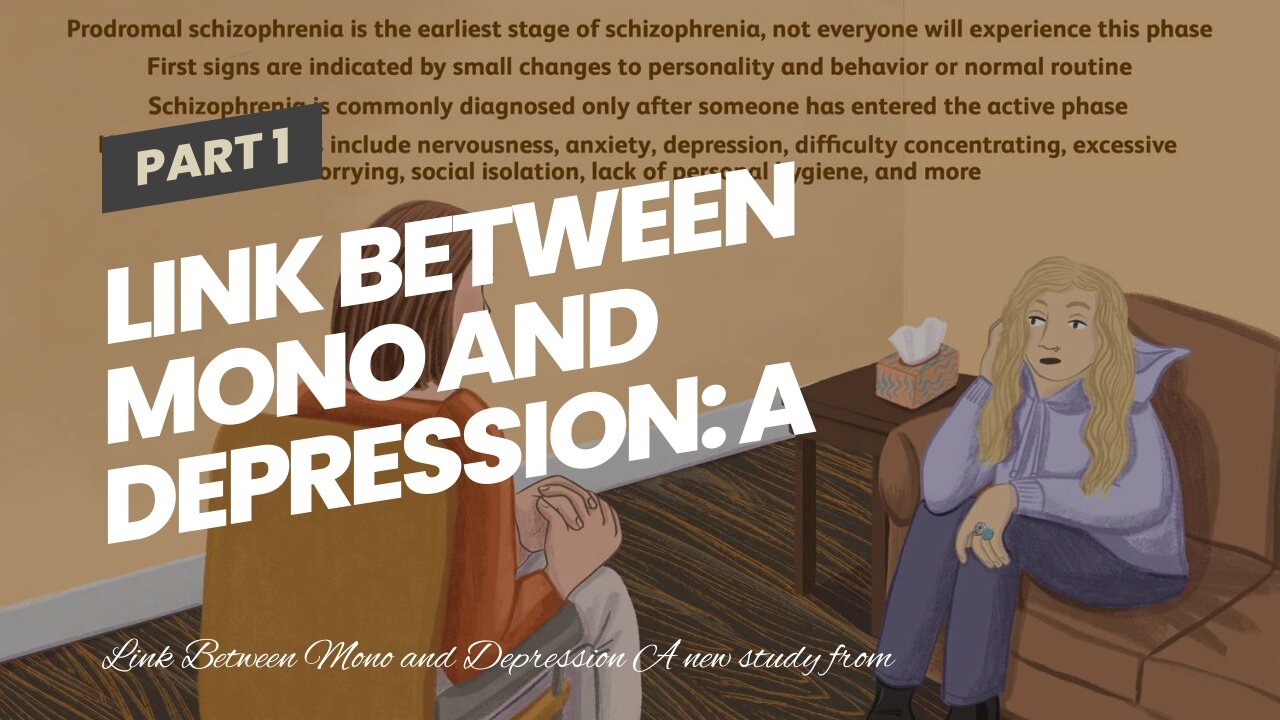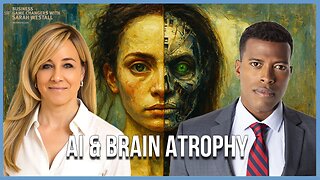Premium Only Content

Link Between Mono and Depression: A Deep Analysis
https://www.mrdepression.com/link-between-mono-and-depression-a-deep-analysis/
Link Between Mono and Depression: A Deep Analysis
Link Between Mono and Depression A new study from iPSYCH has found a correlation between glandular fever and an increased risk of depression The new research, from an iPSYCH study, has found that patients who have had contact with the hospital due to serious glandular fever have a greater risk of developing depression. In more than half of these patients who have had contact with the hospital, a higher number of their lower urinary tract infections had a greater risk of depression when compared to those who had not. Patient education: Infectious mononucleosis (mono) in adults Fundamentals Explained Many are wondering if there is a link between mono and depression. Infectious mononucleosis, also called “mono,” is a contagious disease. Infectious mononucleosis outbreaks usually occur in large numbers with cases reaching a high number of individuals within a few weeks of infection. More severe outbreaks may ensue in small numbers where there is extensive or rapid spread of the disease, a disease of the heart or the brain, and where there is a high incidence of morbidity of the disease. Epstein-Barr virus (EBV) is the most common cause of infectious mononucleosis, but other viruses can also cause this disease. The EBV virus can travel from one person to another by direct contact, through the skin, the respiratory tract, and even through the mucus membranes of the body. It then moves directly to the bloodstream and eventually the kidney and other organs.
Glandular fever – also called mononucleosis – primarily affects young people aged between 10-25 years. It affects one in five – and is usually spread by sufferers or their children. It may not be an allergic reaction – such as a headache or skin rash – but it does cause inflammation that can lead to a wide range of health problems and problems with health and reproductive care, particularly in the first-term population.
Symptoms include fatigue, pain in the neck, fever and swollen lymph nodes on the neck. When a person is feeling tired after eating, they take a stool test. A stool test can detect stool or blood within 10 minutes of eating in normal and healthy people. But it doesn’t know if the person is eating much and if he or she is responding abnormally or just doesn’t feel at peace, says Terence Schilling, lead author of the new study.
The register-based study followed 1,440,590 Danes, of whom 12,510 had contact with the hospital due to glandular fever. Only 2% would get further treatment with benzodiazepines. In the more conservative groups, one in six residents is taking benzodiazepines, which was slightly higher than the national national average. This finding indicates that benzodiazepines can cause increased symptoms in some users and increase their risk of developing thyroid tumors. Depression as a consequence? Link between mono and depression. Depression Professor and Research Director Michael Eriksen Benrós from the Mental Health Centre, Copenhagen, the University of Copenhagen and Aarhus University, who is behind the study, said: “Our study shows that it is associated with a 40% greater relative risk of developing depression if the patient has been in contact with a hospital due to glandular fever. The amount of time patients have been hospitalized as well as their depressive or anxiety history has been linked to a higher risk.
“It is well-known that mononucleosis infection can cause long-term fatigue afterwards, and we can now see that there is also an increased risk of developing actual depression, which requires contact with the hospital. We can also understand it could possibly be due to the lack of the ability to use psychosocial therapies and also of the loss of regular contact with the sick person. We have also shown that exposure to the virus is associated with adverse adverse physical effects.
Fortunately, this was only the case for 1 out of 35 with mononucleosis infection within the study’s follow-up.” Lead author of the study, Nina Vindegaard from the Mental Health Centre, Copenhagen, said: “Previous studies of the correlation between glandular fever and subsequent depression have primarily been small studies and the correlation has therefore been unclear. This has raised the question of what is responsible for this. Conclusions This study is the first major study able to demonstrate the correlation with a subsequent r...
-
 1:29:26
1:29:26
HELMETFIRE
2 hours ago🟢GAMING WITH FIRE EP13🟢
8.55K1 -
 50:40
50:40
Sarah Westall
4 hours agoAI, Social Media & Brain Atrophy: Destroying Human Capacity to Think w/ Rob Smith
16.5K6 -
 LIVE
LIVE
THOUGHTCAST With Jeff D.
1 hour ago $0.01 earnedSunday Night FORTNITE with THOUGHTCAST Jeff D & crew.
250 watching -
 55:10
55:10
The Mel K Show
9 hours agoMel K & Mike L | The Tylenol Piece: It's a Marathon, Not a Sprint | 10-19-25
80.5K10 -
 3:17:37
3:17:37
MrMoBetta13
3 hours agoCFB26 CUT Ranked + NEW NIGHTMARE CARDS and talking college football!!
8.36K2 -
 LIVE
LIVE
Spartan
5 hours agoOMiT Spartan | God of War Ragnarok and then Halo
81 watching -
 3:19:39
3:19:39
FusedAegisTV
1 day agoλ Black Mesa λ (Half Life 1 Remake) █ Western Retread
14.2K1 -
 40:22
40:22
MattMorseTV
4 hours ago $0.27 earned🔴They just tried it... AGAIN.🔴
22.1K53 -
 2:08:52
2:08:52
Nerdrotic
5 hours ago $0.15 earnedUncovering Egypts Greatest Mysteries w/ Hugh Newman| Forbidden Frontier #121
100K9 -
 2:25:58
2:25:58
vivafrei
12 hours agoEp. 287: Bolton INDICTED! Gaza Ceasefire BREACHED? Alex Jones Injustice Continues, ANTIFA & MORE!
111K138